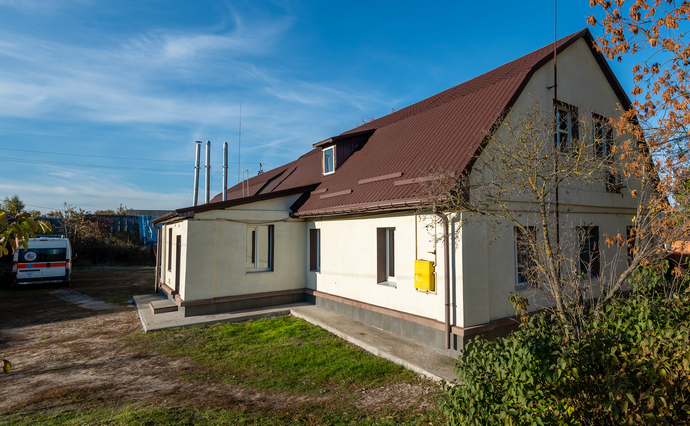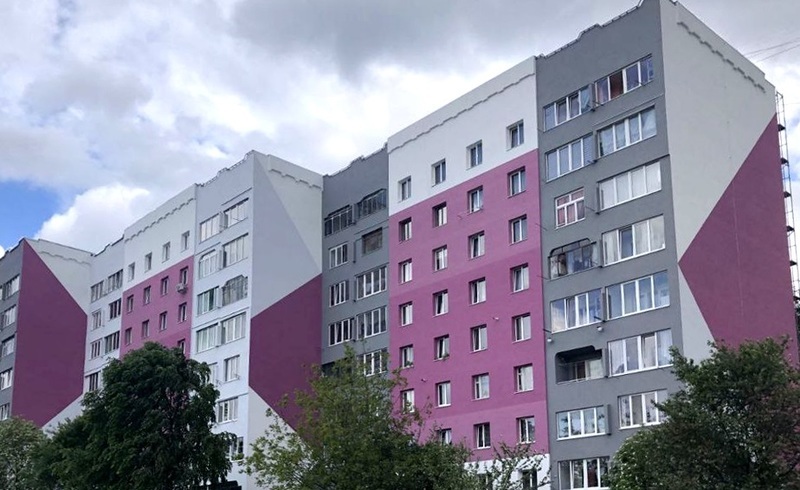Integrating Energy Efficiency in Ukraine's Recovery – Five Recommendations
Russia’s full-scale invasion does not deter but instead stimulates the renovation of buildings according to energy efficiency principles

Energy efficiency is becoming increasingly crucial for Ukraine, especially regarding energy security and reconstruction. To understand how to improve energy efficiency, it is first necessary to define the term and examine the European Union's goals in this area.
What is energy efficiency, and how is it regulated?
In simple terms, energy efficiency is using less energy to achieve the same result. According to the EU Energy Efficiency Directive, the Green Deal and the REPowerEU Plan, energy efficiency is a fundamental principle of energy policy and a defence against geopolitical blackmail.
By 2030, EU countries have committed to reducing energy consumption by 11.7% (compared to 2020). Every year, they will report on the results achieved according to public National Action Plans. Ukraine has also made progress in implementing European energy efficiency legislation. The “Energy Efficiency First” and “Build-Back-Greener” principles are documented in the National Action Plan 2030 and the Plan of Ukraine. They apply not only to the residential and public sectors but also to industry, transport, energy production and transportation.
How does a full-scale war affect energy-efficient reconstruction?
Russia’s full-scale invasion does not deter but instead stimulates the renovation of buildings according to energy efficiency principles. Examples of implemented projects encompass the following:
• Clinic of General Practice and Family Medicine in Horenka Village – Greenpeace and several Ukrainian NGOs reconstructed the heating and electricity system and installed a solar power plant;
• Housing association “LISNA-1” – thermal modernization of two buildings under the “Energodim” program from the Energy Efficiency Fund. During the heating season, energy consumption was reduced by almost 50%;
• The school "Academy of Intellect” in Vorzel was equipped with solar panels. Thanks to them, annual savings will amount to about UAH 80 thousand. Donors and private companies funded the project.
These projects aim at energy conservation and potential energy independence of Ukraine if they are scaled up. However, large-scale energy efficiency improvement is complicated by the fact that it is very expensive.
Ecodia and Berlin Economics estimated that rebuilding Bucha's housing estate would cost 214 million euros, following the minimum energy efficiency requirements, or 318 million euros based on the Near Zero method. Instead, a quick reconstruction via old methods would cost 106 million euros.
In addition to expensive technologies, the following factors hinder large-scale energy-efficient reconstruction: low utility tariffs; building residents cannot always give their consent; and electricity meters are not installed in each household, so data collection on energy consumption is incomplete.
What practices from the European experience in the energy efficiency field can Ukraine adopt?
The experience of the Scandinavian countries, which are leaders in green development, confirms the high cost of transformation. These countries have increased energy taxation, using the proceeds to finance social spending and support green energy. The introduction of such changes was accompanied by active public debate.
To gain access to capital to invest in building renovation programs, municipalities in Denmark and Sweden have begun issuing their own green bonds, which are more attractive than traditional bank loans. Their primary condition is to invest only in projects that meet specific green standards.
An example of a good European practice that can help local and regional authorities reduce the cost of reconstruction and expertise is the RenoWatt platform. It operates as a Single permit centre for public buildings in Wallonia, one of the regions of Belgium.
RenoWatt helps public authorities pool projects to get more affordable prices and innovative financing through energy service contracts. The platform is responsible for legal procedures during procurement, evaluation of technical specifications, and assistance in selecting and negotiating suppliers.
The development of such initiatives requires support from local and regional authorities and increased knowledge sharing.
What should Ukraine do?
To combat the main obstacles to energy efficiency, Ukraine needs to:
• attract funds from international partners and donors to finance projects in communities;
• advocate for energy efficiency among the population of Ukraine;
• make housing modernization attractive for investments;
adjust energy tariffs and do so earlier than in the Plan of Ukraine (according to it, by the 2nd quarter of 2026, only a Roadmap for raising tariffs will be developed);
• install electricity meters if they are not in place so that data collection is as accurate as possible.
The material has been developed within the project "The Recovery Spending Watchdog", funded by the European Union. The project is a joint effort of the Centre for Economic Strategy, the Institute for Economic Research and Policy Consulting, and the NGO Technologies of Progress. All project participants are members of the RISE coalition.
Oleksandra Kobernik, Non-resident Fellow at the Centre for Economic Strategy
Maria Tomilina, Economist at the Centre for Economic Strategy











